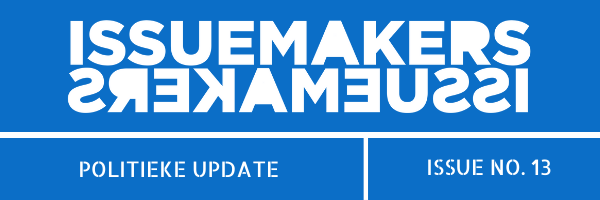
The chaos that dominated the news in recent weeks seems to be somewhat over. Tjeenk Willink was chosen for an experienced informant. Yet the unrest leaves its mark after.

Last week
- Tjeenk Willink, the new informant, has ensured peace in the tent. Although not every party agreed with the choice, everyone accepted it. After he received all party leaders and the new Speaker of the House last week, tomorrow the turn of the National Ombudsman Reinier van Zutphen and director Kim Putters of the Social and Cultural Planning Office. Although it is customary for the informateur to speak with the political advisory bodies in the first phase of the formation, during these meetings extra attention is paid to the way in which citizens' confidence in politics can be restored.
- Since the debate where Rutte almost died, it has been decided to place more emphasis on transparency in politics. Informant Tjeenk Willink emphasized this in his press conference last week and this one criticism has arrived. For example, the agenda items of the Council of Ministers are announced in advance. The decisions will be published afterwards. Commitments by ministers made during public meetings are also recorded in a public register.
- Last week, somewhat surprisingly, Vera Bergkamp (D66) was elected as the new Speaker of the House of Representatives. With 74 votes it was already clear in the first round. Vera Bergkamp started her political career in 2012, when she entered the House of Representatives as the fifth Member of Parliament from D66. She is very outspoken about LGBTI rights and became known for her motion on the refusing officer, with which she achieved a parliamentary majority.
- In addition to the new Speaker of the House, other changes have been discussed in the House of Representatives. A number of new rules have been adopted:
- For example, it is now possible to enter into a direct debate with a minister on Tuesday during the weekly oral question time, where previously it was only possible to ask follow-up questions after the answer.
- Voting will also be regulated as much as possible, so from now on most votes will take place on Tuesday afternoon.
- From now on, MPs may only request letters from the cabinet during the plenary debate that are relevant to that plenary debate. The other letters must be requested during the committee meetings.
- Other adjustments to the meeting rules include: here to find.
Exciting weeks
In the coming weeks, procedural meetings will discuss which controversial agenda items will be discussed before the new cabinet is established. Although everyone hopes that the formation will be completed quickly, certain points are so important that they need to be discussed earlier. Certain points are also too important that they need to be discussed by the new cabinet.
It is still a difficult period for Mark Rutte. The question is how he will regain trust. The youth associations of D66, ChristenUnie, GroenLinks, PvdA, Denk and PvdD also recently signed a letter in which they call on their parent parties to no longer support a cabinet with Rutte. The CDA youth association has not signed the letter, but does call on the CDA not to enter into a cabinet with Rutte again.
Who gets which portfolio?
Klaas Dijkhoff, together with VVD strategist Bas Erlings, Sue Groenewegen and Tom de Bruyne, will start an agency focused on behavioral insight, strategy and positioning. The desk goes Sue & The Alchemists to be named.
If the VVD politicians cannot deal with the desired transparency, then there is one helpline set up to support them with possible integrity problems.
We have made a list of spokespersons. This list shows which MP is responsible for which subjects. Would you like to receive this? Then send an email to to get it sent!
At communications consultancy Issuemakers we advise and support organizations that have or want to make a social impact. We do this by monitoring, managing and creating social and political issues for them. Our advice, campaigns, lobbying processes and strategies incorporate various disciplines, such as: Public Relations, Public Affairs, Stakeholder Management, Reputation Management, Corporate Communication and Crisis Communication.





